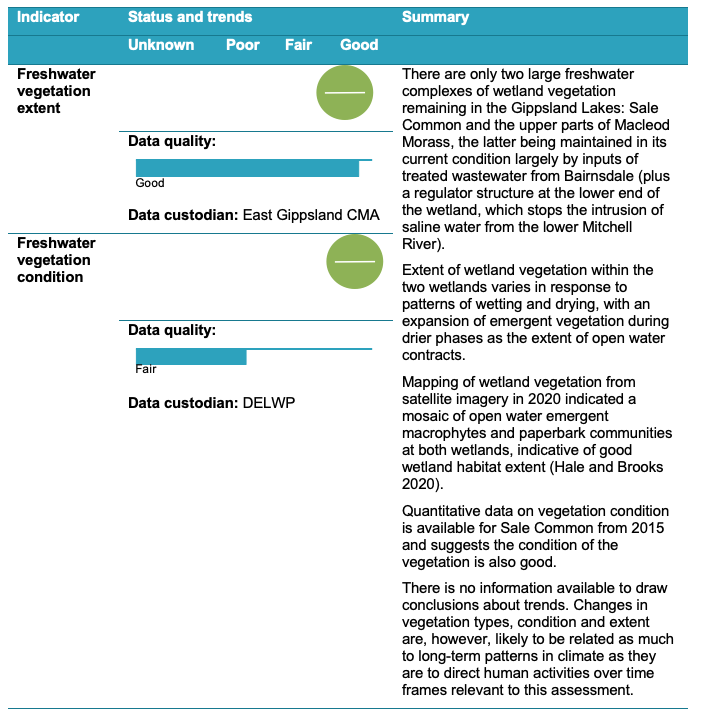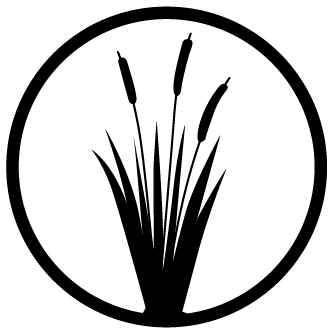
What do the results mean?
There are only two large freshwater complexes of wetland vegetation remaining in the Gippsland Lakes: Sale Common and the upper parts of Macleod Morass, the latter being maintained in its current condition largely by inputs of treated wastewater from Bairnsdale (plus a regulator structure at the lower end of the wetland, which stops the intrusion of saline water from the lower Mitchell River). The two wetlands vary in response to patterns of wetting and drying, with an expansion of emergent vegetation during drier phases as the extent of open water contracts. Mapping of wetland vegetation from satellite imagery in 2020 indicated a mosaic of open water emergent macrophytes and paperbark communities at both wetlands, indicative of good wetland habitat extent. Quantitative data on vegetation condition is available for Sale Common from 2015 and suggests the condition of the vegetation is also good. There is no information available to draw conclusions about trends.




